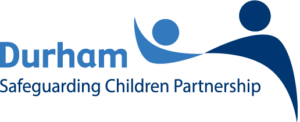The Internet Matters website can help you to find out more about what your children might be doing online and give you some simple, practical and easy advice on the steps you can take as a parent to keep them as safe as possible.
Partners working in Durham now have access to a wealth of ‘Get Safe Online’ resources. Get Safe Online is the UK’s leading source of factual and easy to understand information on online safety. There is a range of advice and information practitioners can access concerning safeguarding children. This includes gaming, texting and sexting, apps, cyberbullying, online radicalisation and safe browsing amongst others. Other subjects such as social networking, protecting your tablets, smartphones, protecting yourself and online shopping and banking will also be of interest.
Ashleigh Hall, a 17 year old from County Durham, was raped and murdered by a stranger posing as a teenage boy on an internet social networking site. Her parents have worked together with the police to create the Ashleigh’s Rules.pdf document so that other children and young people can be kept safe.
Ashleigh’s rules
- Never go on your own to meet up with somebody you or your friends don’t know – make sure that you meet them in a group of at least two to three and in a public, well-lit and populated area.
- Inform somebody of where you are going and what time you should be back, also the name of who you are meeting.
- Don’t accept anyone on social networking sites that you don’t know.
- Remember never to trust anyone who you have met online, you don’t know what they are capable of doing.
- Never tell a stranger on network sites or chat rooms anything personal about yourself, such as where you live, date of birth.
- Never meet anyone you don’t know, simple as!
For more information and support to help keep children and young people safe from online abuse see NSPCC: Keeping Children Safe Online.
Further specific support for parents can also be accessed through the National Crime Agency: ThinkUKnow and The North East Regional Cyber Crime Unit (NERCCU).
Meet Jessie & friends: online safety education for children aged 4 to 7 years from ThinkUKnow
Jessie & Friends is a three episode animated series that aims to equip 4 to 7 year olds with the knowledge, skills, and confidence they need to help them stay safe from sexual abuse and other risks they may encounter online.
You can find more information on spotting the signs of online harm from NSPCC: Online Safety Training.
More information, guides and resources about online safety
- NSPCC: Keeping children safe online
- National College: guides, multi-award winning, with a new one released every week, provide expert advice on keeping children safe online.
- YouTube: safety information for parents – think about which features are right for your child.
- You can also find Google: Staying safe on YouTube guides for young people, parents, carers and educators.
- YouThinkUKnow: Cyber Security: a guide for parents and carers
- Act Early has guidance on how to spot signs that someone may be being influenced by extreme material online.
- Our Pact is a parental control app to help you keep your children safe.
The North East Regional Cyber Crime Unit (NERCCU)
The North East Regional Cyber Crime Unit (NERCCU) with colleagues from Cleveland Police, Durham Constabulary and Northumbria Police, make up a regional network of specialist cyber officers who work closely with the National Crime Agency (NCA) and are a trusted partner of the National Cyber Security Centre (NCSC).
We have a dedicated team who work closely with the National Crime Agency (NCA) to deliver a national initiative called Cyber Choices which focuses on preventing young people from becoming involved in cyber crime. The aim of Cyber Choices is to educate young people, who have an interest in technology, to use their skills safely and legally while also raising an awareness of the consequences of becoming involved in cyber crime. If you have concerns about a young person who may be involved in cyber criminality or would like some advice around the Computer Misuse Act, a referral form can be located on the North East Regional Cyber Crime Unit website. There is also a library of information to help you understand what to look out for and how to keep your children, yourself and your business safe from online threats.
